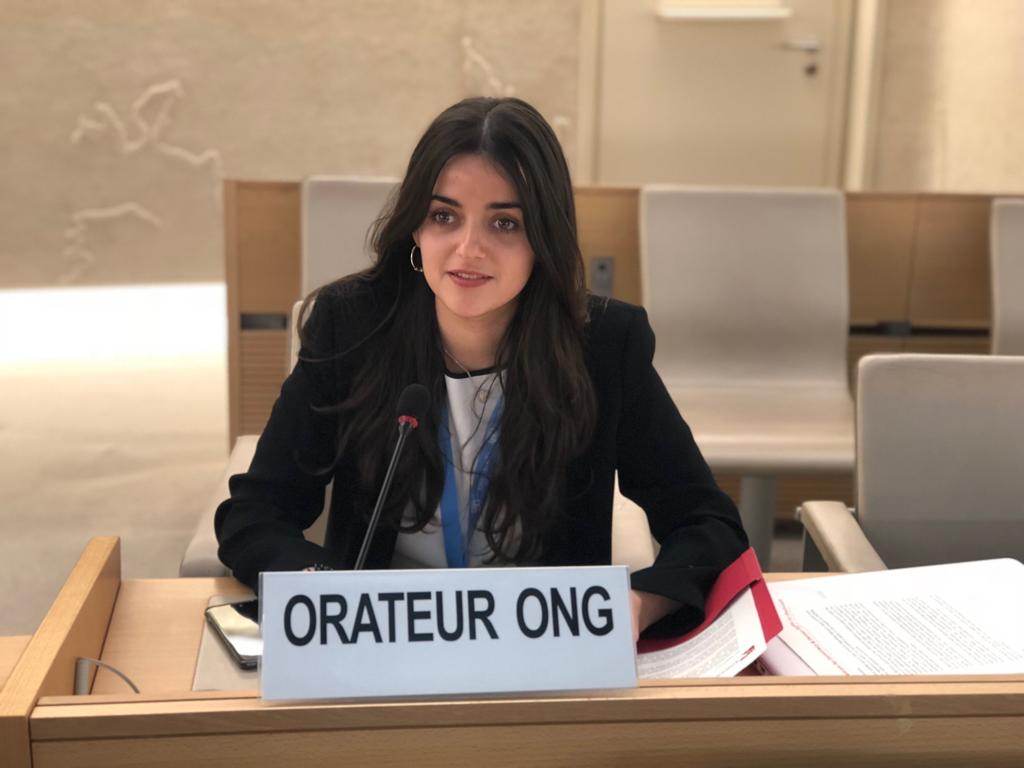1 March 2019 – Today, Clara Sanchez Lopez, on behalf of Americans for Democracy & Human Rights in Bahrain (ADHRB) delivered an oral intervention during the Item 3 Clustered Interactive Dialogue with the Special Rapporteur on promoting and protecting human rights while countering terrorism. In the intervention, Lopez expresses serious concern about the impact of Bahrain’s anti-terror legislation on civil and political liberties, in particular as concerns the targeting, arrest, and detention of human rights defenders and activists. Please continue reading for the full text of the statement, or click here for a PDF of her remarks.
Mr. President,
IDO and ADHRB wish to raise concerns regarding Bahrain’s abuse of broad anti-terror legislation to restrict civil and political space in the kingdom by targeting human rights defenders and activists.
The Bahraini government has effectively dissolved political opposition under the guise of countering terrorism and using false terror charges. The assault on the political opposition began in earnest in 2016, when a court dissolved Bahrain’s largest political opposition group, Al Wefaq, accusing it of supporting violence and expressing its “solidarity with suspects convicted of instigating hatred of the political regime.” Al Wefaq’s Secretary General, Sheikh Ali Salman, after serving four years in prison for political speeches the government claimed “incited disobedience and hatred in the kingdom,” is now serving a life sentence in prison on fabricated espionage charges.
In March 2017, authorities launched legal proceedings to dissolve Wa’ad, a leading secular, leftist opposition society, citing unsubstantiated allegations of “incitement of acts of terrorism and promoting violent and forceful overthrow of the political regime” after Wa’ad issued a statement describing Bahrain as experiencing a “constitutional political crisis.” Wa’ad’s dissolution was upheld this past January.
Prominent Bahraini human rights defenders are also serving prison time on false terror charges. Abdulhadi AlKhawaja, Dr. Abduljalil AlSingace, and NajiFateel have been imprisoned since 2011 for their involvement in Bahrain’s peaceful protest movement. Nabeel Rajab is serving a five-year prison sentence for tweets the government deemed were “spreading false rumors in time of war.”
With Bahrain using its broad and vague counter-terror laws to criminalize free expression and dissent, how can these laws be amended to ensure basic human rights are protected?
Thank you.





